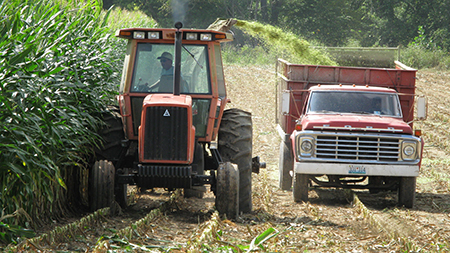Farming is a tough job that shows no mercy. Whether facing a drought or flood, unreasonably high interest rates or unbelievably low commodity prices, farmers and ranchers work tirelessly to produce food, fiber and renewable fuels for the world.
While most of the factors that affect farming and ranching are out of our control, Congress can move forward with comprehensive tax reform that gives farmers and ranchers the flexibility they need to make sound business planning decisions. Tax reform is a popular topic in Washington, D.C., these days. As both a rancher and certified public accountant, I believe the conversation on this topic should begin by addressing cost recovery.
All farmers and ranchers—no matter the size of their farm business—should be able to use cash accounting, a bookkeeping method that allows small businesses to match income when cash is received with expenses when they are paid. This method is important to many small-business owners–like farmers—because of its simplified bookkeeping process. Most farmers cannot afford to employ an accountant and do not require a CPA to keep the books because of the way their businesses are structured.
Cash accounting allows farmers and ranchers to manage their cash flow and plan for expected price increases to inputs like fuel, feed and fertilizer. Business interest expense and state and local taxes are two of the highest operating expenses for farms and ranches. With cash accounting, farmers can deduct expenses immediately to free up cash to put right back into their businesses.
Farmers can also maximize tax efficiency by deferring the tax on revenue earned but not yet received. This leaves them free to make savvy decisions like storing a commodity until they can ensure a fair price for it. Can you imagine paying taxes on your income before getting your paycheck? Similarly, paying taxes on a crop that hasn’t been sold yet would be disastrous for a farm business. Most farmers and ranchers would have to get a loan each year to pay the tax on stored commodities, effectively increasing the cost of growing that crop.
As a young rancher, I find myself in uncertain times just like the generations of ranchers who came before me. Not only am I tasked with raising my family in an ever-changing world, but I’m also trying to farm more with less due to high business costs, consumer misperceptions and urban sprawl.
The continuation and expansion of cash accounting is just one slice of the comprehensive tax reform pie that is critical to the business of agriculture. I can’t control the weather, the cost of fuel or the prices I’ll receive at market, but I can—and I do—expect my congressional lawmakers to ensure federal tax provisions put small business owners like me in a position to control my costs as much as possible.


